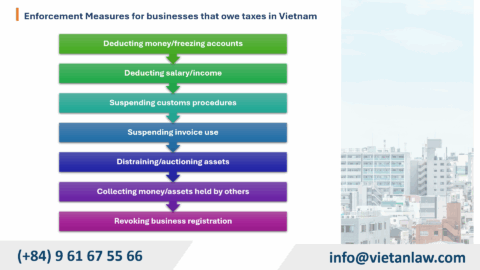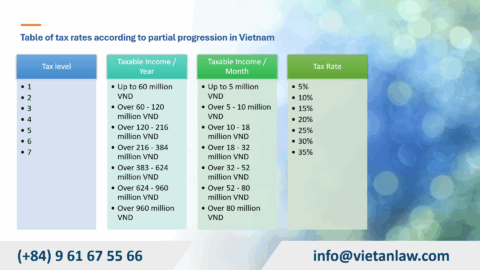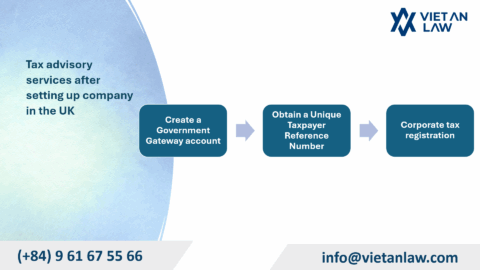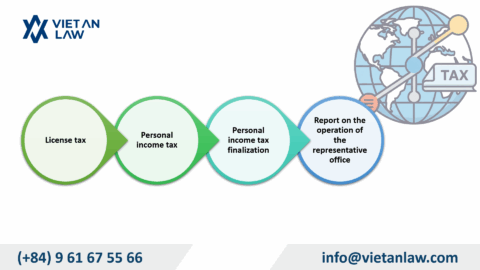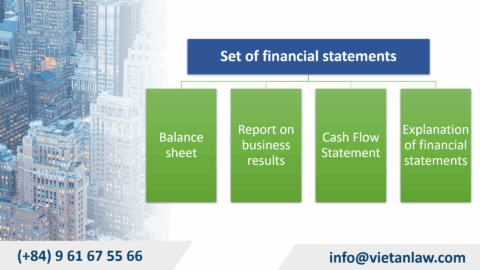Economic development is always one of the core issues that lay the foundation for a country, and Vietnam is no exception to that trend. The State increasingly stimulates and encourages economic growth, creating motivation for domestic and foreign investors to participate in the country’s economic market. The most obvious manifestation is shown through regulations related to incentives in general or regulations on tax incentives in particular. In the following article, Viet An Law will summarize regulations on industries or business lines that receive tax incentives in Vietnam according to current law.
Pursuant to the provisions of the Enterprise Law 2020, tax incentives are an aspect of a country’s investment incentives, designed to encourage or encourage a specific economic activity by reducing tax payments to a company in the above country.
Pursuant to the provisions of Clause 1, Article 15 of the Investment Law 2020, regulations on investment incentives include:
Thus, tax incentives are considered a form of investment incentives under State regulations.
Under the provisions of Article 17 of the Investment Law 2020 guided by Article 23 of Decree 31/2021/ND-CP regulating procedures for applying tax incentives as follows:
Pursuant to Clause 1, Article 16 of the Investment Law 2020, regulations on industries eligible for investment incentives are as follows:
| No | Business lines | Note |
| 1. | High-tech activities, high-tech supporting industrial products; research and development activities; produce products formed from scientific and technological results according to the provisions of law on science and technology. | Businesses will be charged a preferential tax rate of 10% for 15 years. Tax exemption for 4 years, 50% reduction of tax payable for the next 9 years. |
| 2. | Producing new materials, new energy, clean energy, renewable energy; produce products with added value of 30% or more, energy-saving products | |
| 3. | Producing electronic products, key mechanical products, agricultural machines, cars, auto parts; shipbuilding | |
| 4. | Manufacturing products on the List of supporting industrial products prioritized for development | The list of supporting industrial products prioritized for development includes 6 industry groups:
Textile and garment industry Leather and shoe industry Electronics and information technology industry Automobile manufacturing and assembly industry Mechanical manufacturing industry Support products for the high-tech industry |
| 5. | Producing information technology products, software, and digital content. Preferential products must be provided by Vietnamese individuals, organizations, and businesses | Production standards implemented by Vietnamese organizations and enterprises must have a Certificate of conformity to ISO 9001 management system standards or ISO/IEC 27001 standards issued by a registered certification organization or equivalent; |
| 6. | Cultivation and processing of agricultural, forestry, and aquatic products; planting and protecting forests; making salt; seafood exploitation and fisheries logistics services; production of plant varieties, animal breeds, and biotechnology products | |
| 7. | Collect, treat, recycle, or reuse waste | Corporate income tax incentives are applied to businesses’ income from implementing investment projects such as: collecting, transporting, and treating concentrated ordinary solid waste; taking measures to treat and renovate polluted environmental areas in public areas; Responding to and handling oil spills, chemical incidents and other environmental incidents |
| 8. | Investment in the development, operation, and management of infrastructure projects; development of public passenger transport in urban areas | |
| 9. | Preschool education, general education, vocational education, university education | |
| 10. | Medical examination and treatment; production of drugs, medicinal ingredients, and drug preservation; Scientific research on preparation technology and biotechnology to produce new drugs; medical equipment production | |
| 11. | Invest in facilities for practicing and competing in physical education and sports for people with disabilities or professionals; protect and promote cultural heritage values | |
| 12. | Invest in centers for geriatrics, psychiatry, and treatment of patients infected with Agent Orange; Care centers for the elderly, people with disabilities, orphans, and homeless children | |
| 13. | People’s credit funds, microfinance institutions | |
| 14. | Producing goods, providing services, creating or participating in value chains or industry clusters |
In addition, industries eligible for investment incentives are also detailed in Appendix II of Decree 31/2021/ND-CP. The Appendix is the specification of the industries specified in Clause 1, Article 16 of the Investment Law 2020, divided into 2 groups of industries: special incentives and investment incentives, and at the same time clarifies the special industries in each group.
If you need advice or learn more about industries eligible for tax incentives in Vietnam, please contact Viet An Law Firm for the best support.
